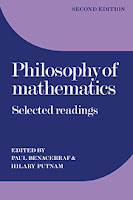 |
| Photo: Storyblocks.com |
 |
| New Learning Elements of a Science of Education |
Fully revised and updated, the second edition and its companion website include greater coverage of educational psychology and cognitive science perspectives, the use of assessment in education and curriculum developments around the world. New Learning, Second Edition is an inspiring and comprehensive resource for pre-service and in-service teachers alike.
- Brings concepts and theories to life with exciting and real-world examples
- Gives students access to cutting edge online tools offered through newlearningonline.com
- Raises the intellectual tenor of the discipline of Education with reference to big-picture ideas and important thinkers
The Cambridge Ancient History - Plates to Volumes VII, Part 2 and VIII
 |
| The Cambridge Ancient History |
All aspects of material culture are considered, with a particular focus on the development of coinage, as well as monumental building, the archaeology of naval and land warfare and the fascinating mixtures of languages and scripts represented in epigraphy. This will become a standard reference work for the period.
- Accompanies the text Volumes 7 (Part 2) and 8 of the most authoritative history of the ancient world
- Highly valuable resource for research and teaching
- Authoritative selection of illustrations, accompanied by substantial captions and introductory essays, by a team of leading experts
Philosophy of Mathematics - Selected Readings
 |
| Philosophy of Mathematics Selected Readings |
It is a substantially revised version of the edition first published in 1964 and includes a revised bibliography. The volume will be welcomed as a major work of reference at this level in the field.
Read more...
Kant's Philosophy of Mathematics - The Critical Philosophy and Its Roots
 |
| Kant's Philosophy of Mathematics The Critical Philosophy and Its Roots |
The volume will be important for readers seeking a comprehensive picture of the current scholarship about the development of Kant's philosophy of mathematics, its place in his overall philosophy, and the Kantian themes that influenced mathematics and its philosophy after Kant.
- Engages with a lively and emerging field which will connect Kantian studies with mathematical philosophy in innovative ways
- Brings together authors from different schools of thought to provide readers with a full spectrum of contemporary approaches to Kant's philosophy of mathematics
- Explores how Kant's mathematical thought developed over time, with chapters organised thematically to aid readers' navigation of the issues
A Concise History of Mathematics for Philosophers
 |
| A Concise History of Mathematics for Philosophers |
These themes have evolved under the influence of new mathematical discoveries and the story of their evolution is, to a large extent, the story of philosophy of mathematics.
Read more...
Human Intelligence - An Introduction
 |
| Human Intelligence An Introduction |
Each chapter also includes a 'Focus on Contemporary Research' box that describes in vivid detail the chapter author's current research. A rich program of tables, figures, photos, and samples from research tools throughout help students understand the material in a concrete way.
- Written by the top psychologists studying human intelligence today, to offer the most up-to-date review of the field and its scholarship
- Provides a comprehensive introduction to human intelligence from a variety of perspectives
- Research-based, with clear explanations of how the research has contributed to a fuller understanding of human intelligence over time
Read 📚books and drink ☕️coffee!
Source: Cambridge University Press







































